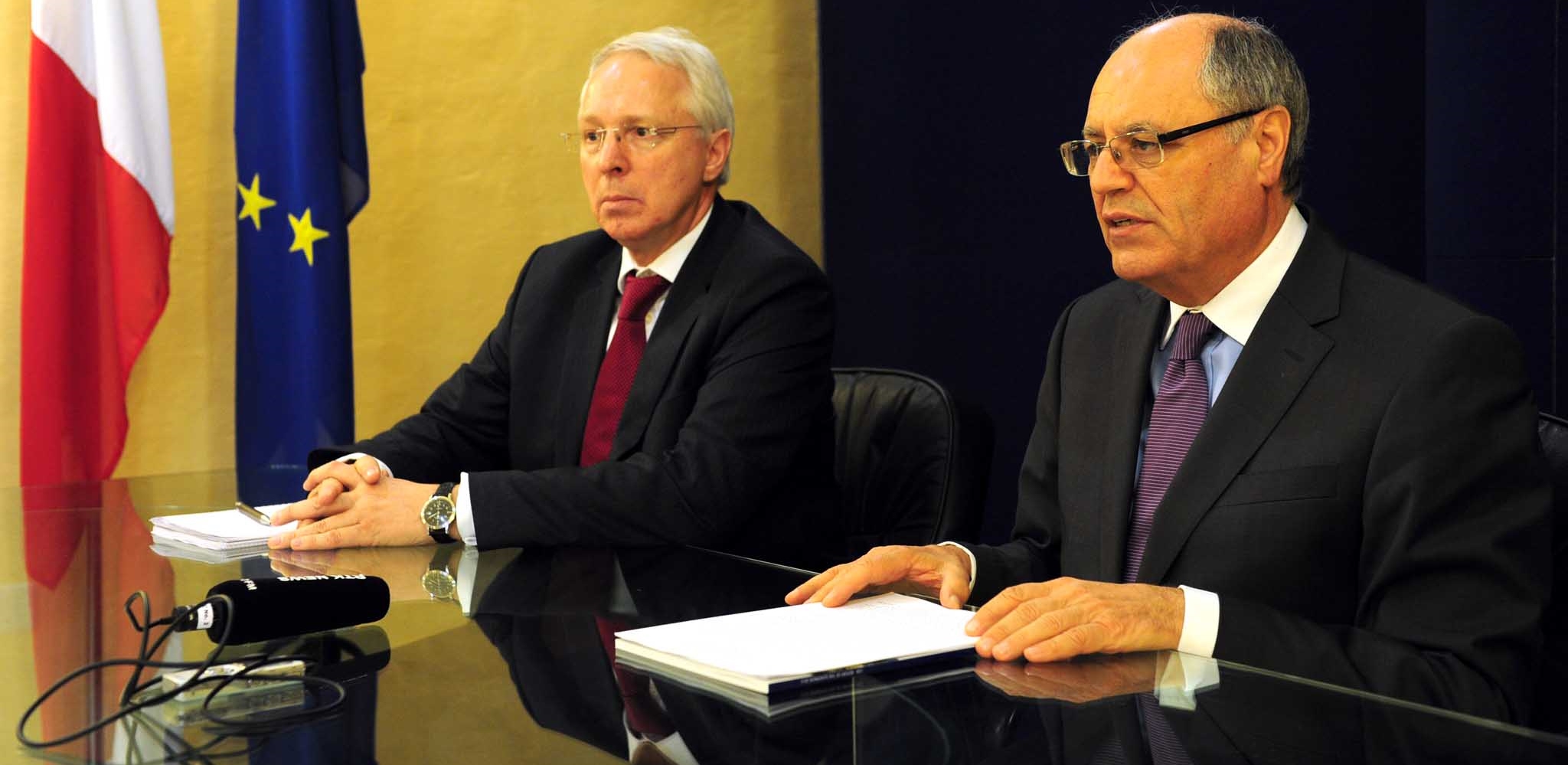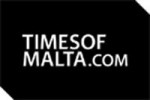Opening address delivered by the Hon. Prof. Edward Scicluna
Excellencies, distinguished guests, ladies and gentlemen.
I join the Prime Minister who met with you yesterday at the Upper Barrakka in welcoming you to Malta. We wish you a successful and fruitful meeting and an enjoyable stay here as well.
As I will be pointing out, the Bank holds a special place in our hearts. It is a bank which, even before Malta became a member of the European Union, allowed us to borrow from a truly European bank. A well established bank with good financial credentials, but also with a social conscience. A bank which at first appearances seems to lend to non-profitable ventures such as housing, schools, public hospitals, SMEs, but shows that too these projects can also be bankable and contribute to the development of the country in a meaningful way.
Personally, the bank holds a special place for me as well, having, some years back, become quite familiar with its inner workings when I sat on its auditing committee. My colleagues and I spent several days each year going through the figures making sure that they add up, so to speak.
Today as Finance Minister I am still going through the figures to make sure the figures do add up. This time they refer to my country’s public finances.
And it is therefore a double pleasure for me in welcoming you to Malta on the 40th anniversary of Malta’s accession to the CEB, or the Social Fund as it then was called.
Malta too has a history with the CEB. This goes as far back as the 1970s and 1980s, when Malta received loans for the development of various social housing projects.
More recently, Malta received a very substantial loan for the part-financing of the Mater Dei Hospital, which went on to become Malta’s main general acute and teaching hospital, which you will be visiting this afternoon. In between there were other projects related to lending to micro and small enterprises through a local Maltese bank.
Many visitors to Malta often ask what is the Maltese economy about. Is it just tourism? It is obviously clear that tourism is indeed the mainstay of the local economy, accounting for a significant part of the Gross Domestic Product.
We are happy to note that the sector is thriving along with annual positive rates of growth. Tourist arrivals will soon teach the one and a half million mark.
To survive the industry is changing and diversifying into new source markets including niche areas, such as cultural tourism, conference and business tourism, English-teaching tourism and also film buffs.
The latter visit Malta merely to view the film sets or sites of famous films produced in Malta by its thriving film industry. Among them one could mention Popeye, the Gladiator, Troy, Munich, the Count of Monte Cristo and most recently, World War Z.
The Maltese economy has to be highly diversified in order to survive. It has a strong manufacturing base of more than 250 foreign-owned, export-oriented enterprises, including Baxter and Actavis in pharmaceuticals, Playmobil for toys, and ST Microeletronics for microchips.
The Asset Management and Investment Funds Industry is one of the fastest growing sectors in the Maltese Financial Services Industry. In just a few years, the country established itself as a fund domicile of international repute, serving not only the domestic market but also European and international markets. Malta has distinguished itself from the traditional hedge fund jurisdictions.
Such developments in the regulation of hedge funds in the EU are expected to ensure that Malta will continue to offer an attractive legal and regulatory framework for hedge fund managers to operate within the EU, as well as internationally.
Malta is seen as an ideal place to build a business and innovate, has a highly skilled and educated workforce, is open to the world thanks to the English language, enjoys an excellent communications infrastructure, and offers easy and ready access to vast European and International market.
Together these factors have allowed Malta to keep unemployment low and achieve a satisfactory rate of economic growth, which, according to the International Monetary Fund’s latest report, is set to keep on being moderately positive.
This is perhaps not surprising. In 2012, a survey by Ernst and Young among local and foreign companies confirmed that the majority (86%) feel that Malta is attractive to foreign direct investment thanks to the country’s political and economic stability which includes its strong regulatory environment framework.
Local labour skills – a direct result of the Government’s recognition of the need to develop the country’s human resource potential through training and education – are also rated highly.
Malta has achieved global recognition that its educational infrastructure is able to ensure the continuous supply of highly qualified graduates and skilled workers especially in science and engineering fields. Furthermore, the country today also boasts a specialist educational institution focused on aircraft engineering and maintenance.
The country also boasts of state of the art broadband internet connectivity and mobile infrastructure through large investments by the major telecommunication companies.
The latter in particular has also allowed the blossoming of a relatively recent economic activity: igaming and related digital creative arts activity. The sector, largely non-existent before 2008, grew rapidly also mainly thanks to Malta being a member of the European Union.
So far, Malta’s model has proven itself. Despite the economic downturn that has swept the Euro zone, Malta has remained strong. Our unemployment rate relative to other European countries has remained low at 6.6%, well below the EU average, and our growth has recovered positively since the short recession dip in 2009. Our latest inflation statistic is a year on year rate of 0.8%.
The Government welcomes the economic results achieved during the first three months of this year, whereby the Maltese economy registered an increase of 1.6% in real terms compared to the corresponding quarter last year.
The Finance Ministry is confident that the Maltese economy can keep on growing once its momentum, derived from the joint positive contribution of the various economic sectors, is kept in spite of restricted room for fiscal
manoeuvre.
As you all know, Malta’s financial and banking sector has attracted attention. It has grown in recent years and due to its soundness and that of its regulatory framework has managed to avoid the financial contagion.
Thankfully our conservatively run banks did not require any bail-out. This helped the government to concentrate its resources on managing the economy without undue burdens from the private financial sector. For this reason it welcomes external scrutiny.
We recognise the importance of transparency and accountability and strong supervision.
I am pleased to be able to stand here before you and say that we withstood that scrutiny and come out with a clean bill of health. A recent World Economic Forum Report ranked Malta 15th worldwide as a financial market, 12th for regulation of the stock exchange and 13th worldwide for the soundness of the banks.
The soundness of Maltese banks has been similarly complemented by EU external stress tests, and is set to do so again in future tests.
It is now accepted that the assets of the domestic core banks have little or no exposure to programme countries in the Eurozone. Our national debt is held almost totally by the local resident population.
It is to this effect that credit rating agencies Fitch and Standard & Poor’s, Bloomberg News Service, Nomura Global Services, and even the European Commission itself, concluded that Malta’s banking and financial sector has proven itself sound and resilient.
The 2013 report of the European Economic Advisory Group similarly commented that Malta, alongside Austria, Germany and Slovakia, has seen robust economic momentum in recent years.
One cannot discuss Malta’s financial future without noting the European Commission’s recent decision to recommend that Malta re-enter Excessive Deficit Procedures in view of a onetime fiscal slippage of 0.3% that trigged the EDP procedure.
This Government remains confident that the Government will be able to close the year with a deficit below 3%.
The European Commission’s decision to not impose specific effective measures is a positive sign that underlines the confidence that our resilient and growing economy enjoys.
We are confident that we can achieve our budgetary targets through several initiatives, which are in line with the Government’s commitment to working towards enhancing Malta’s economic growth potential while maintaining fiscal governance.
The new government’s investment plans cover many diverse areas which range from an ambitious energy plan to shift our energy needs on a diversified source which include an interconnector between Malta and Sicily, and LNG powered electricity plants.
Other projects include land reclamation, and new jetties for cruise liners. Some are yearning for a tunnel or causeway to connect the two sister islands of Malta and Gozo.
But in the area of social investment we also have ambitious plans to build and refurbish schools in a financial sustainable way; build or develop island-wide free childcare centres for all, and social housing.
We need innovative ways to finance the projects hand in hand with the private sector. For this reason we would be undertaking discussions with the Bank to investigate these projects further and examine agreeable ways to finance them.
I would like to thank publicly his Excellency ambassador Licari who has worked so hard to bring this meeting to Malta and show to the European members of the Bank the rich historic sites and beauty of the island to his colleagues. Ambassador, thank you.
Finally, I wish you all a successful meeting for the rest of the programme.
– gallery –
[nggallery id=133]
[nggallery id=134]
– links –
– Thursday, 13 June 2013


